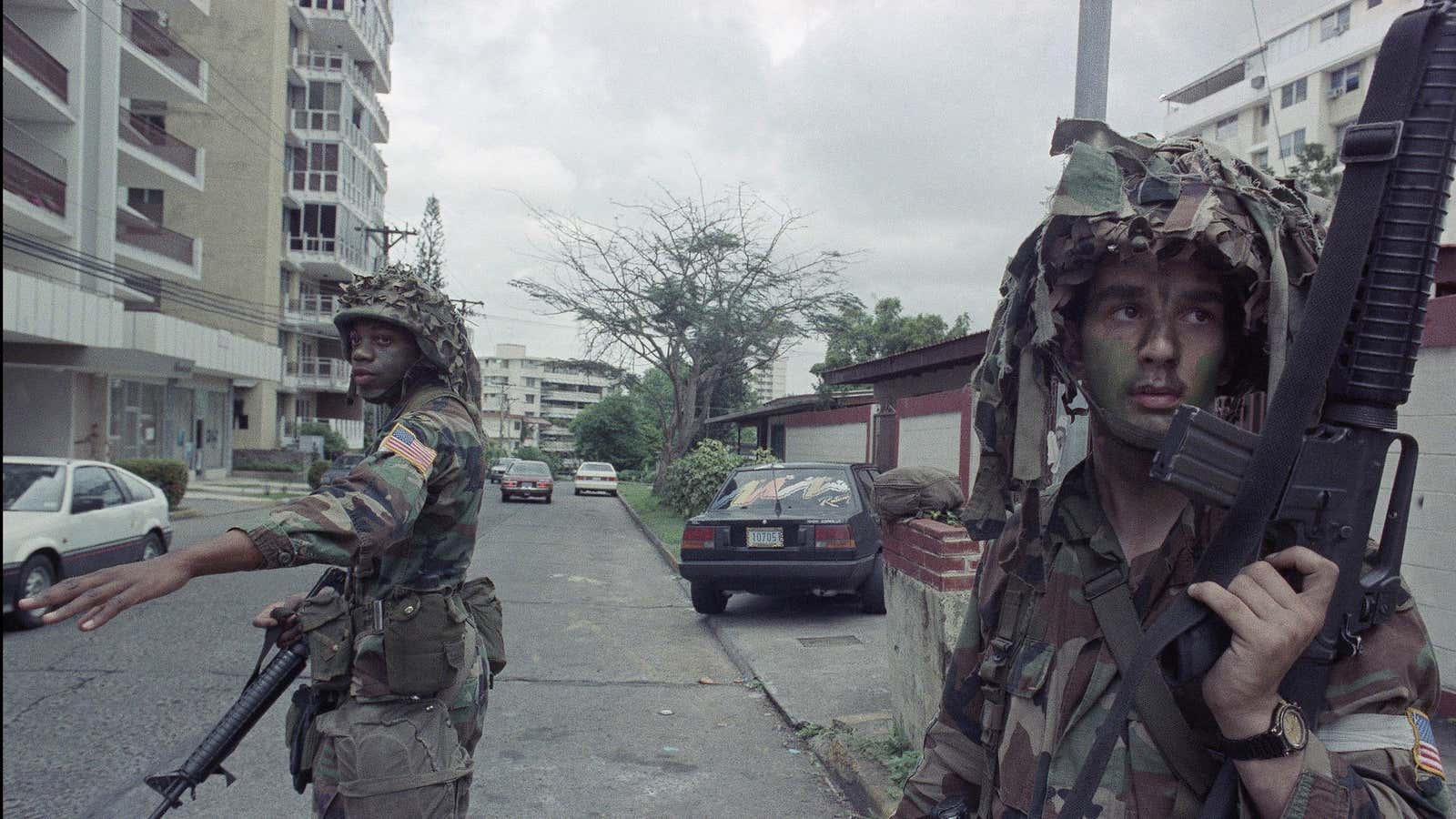The 1989 US invasion designed to oust Panamanian dictator Manuel Noriega set a precedent for the kind of foreign intervention the US would engage in the decades following the Cold War. A lesser-known legacy of that armed conflict is the use of sound torture.
Noriega, who ruled Panama from 1983 to 1990, died Monday (May 29) at 83. For decades, he was a US ally, first as an informant for the Central Intelligence Agency and later helping the US’s anti-communist efforts in the region. But Noriega kept other friends, including cartel capos such as Pablo Escobar. By the end of 1989, with Noriega accused of drug trafficking in the US and his regime in Panama growing increasingly repressive, the US invaded the Central American country.
Noriega fled to the Vatican’s embassy in Panama City to seek refuge. To force him to surrender, American troops blasted music from a military radio station at his window. The operation quickly became crowdsourced after listeners got word of it and started calling in with requests of songs they thought would do the job. The list they came up was eclectic, from Ricky Nelson’s “Poor Little Fool” to “You Shook Me All Night Long” by AC/DC. “Never Gonna Give You Up” by Rick Astley was also included. (The radio operators, SouthCom Network, kept a record of the playlist in a report.)
President George H.W. Bush and his Joint Chiefs of Staff chairman Colin Powell frowned on the technique, and ordered it stopped, according to an account by the New Yorker’s music critic Alex Ross. But the idea of sound as a psychological weapon prevailed. The Federal Bureau of Investigations tried to drive Branch Davidians out of their Texas compound with a mix that included Christmas carols and Nancy Sinatra’s “These Boots Are Made for Walking” during the 1993 Waco siege. After the 9/11 attacks, interrogators at Abu Ghraib and other military prisons used kiddie songs by Barney to pressure prisoners.
More recently, police have deployed “sound cannons”—devices that emit ear-splitting noises—against Occupy Wall Street and Black Lives Matter protestors.
But Noriega, who was trained in psychological warfare in the US himself, was unaffected. He slept soundly through the racket, according to the New Yorker article. In the end, it was the Vatican envoy, not music, who turned him out.
